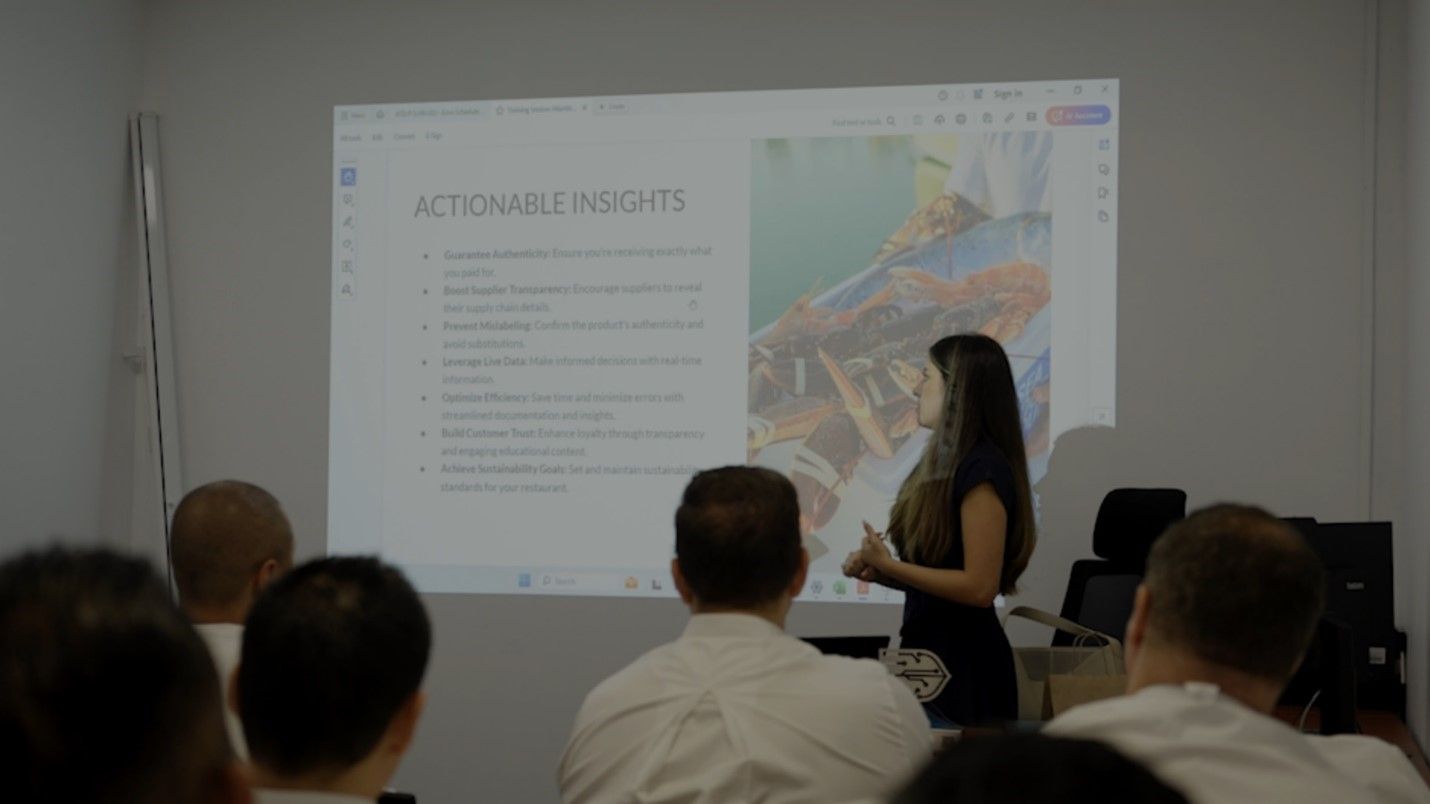Navigating New Currents: Seafood Souq’s Strategy for Transforming Seafood Traceability
)
In an industry often criticised for its opacity, Seafood Souq stands out as a beacon of transparency and innovation. As the global seafood trade grapples with issues of sustainability and traceability, Seafood Souq is pioneering new technologies to ensure that every fish and crustacean in the supply chain is accounted for and responsibly sourced. At the helm of this transformative journey is Valeria Mendez, the Head of Marketing and Traceability at Seafood Souq. With a deep commitment to reshaping the seafood industry through advanced traceability and sustainability practices, Mendez is driving a movement that promises to set new standards in seafood sourcing.

Exclusive Interview with Valeria Mendez, Head of Marketing and Traceability at Seafood Souq
Q. Tell us about Seafood Souq and your role as Head of Marketing and Traceability.
Seafood Souq is a B2B platform that facilitates the global trade and traceability of seafood. We’re a team of tech, procurement, supply chain, and industry experts focused on increasing transparency and efficiency in the seafood industry through technology and a vertically integrated approach. I joined Seafood Souq when we were just starting to ideate our traceability technology. We saw a clear need for this in the industry, and today, my role has evolved into leading the development of traceability from a product, communications, and sales perspective. We have an in-house technology and development team that brings these solutions to life.
Q. Traceability is a cornerstone of Seafood Souq’s business model. Could you share how the company has utilised technology to ensure the seafood you source is fully traceable, and why this level of transparency is so critical in today’s market?
Traceability is at the core of what we do, both in our trading and technology business. We provide transparency and visibility throughout the supply chain with a suite of Trace software products. These products tackle different parts of the supply chain, and when used together, they offer end-to-end traceability. Our technology, SFS Trace, helps organisations gain insights into their seafood procurement, assess supplier practices, and make more responsible sourcing decisions. Traceability is crucial for everyone in the supply chain—from the source to the end buyer—to verify provenance, avoid mislabelling and malpractice, and safeguard our oceans.
Q. As consumers become increasingly aware of sustainability and ethical sourcing, how has Seafood Souq responded to these trends? How do you see this shift in consumer demand influencing the broader seafood industry?
Absolutely, consumers are becoming much more aware of sustainable sourcing—not just from an ethical perspective, but also from a health standpoint. They’re demanding fair prices and transparency about where their food comes from— the who, when, and how. At Seafood Souq, we feel it’s our responsibility to educate both our clients and the general consumer. The seafood industry is still very traditional and unknown to many people. Our goal is to encourage consumers to ask the right questions: Where is my seafood coming from? Why is one origin more expensive than another? By asking these questions, real change can happen. We’ve introduced QR codes on seafood packaging with some of our clients in Europe, so consumers can trace the journey of their seafood from source to packaging. Now more than ever, people want transparency in the products they buy. With documentaries like Seaspiracy and various news scandals exposing malpractice, there’s growing uncertainty. I believe there’s a strong push for regulations to advance, providing more traceability and transparency across the board.
Q. The global seafood supply chain is known for its complexity. What are the biggest challenges you’ve encountered in ensuring the integrity and sustainability of your supply chain, and what strategies have you implemented to address these challenges?
It’s been a huge learning curve. Supply chains are indeed very complex, with multiple handshakes along the way, different government regulations, and a general lack of standardisation. The traditional ways of doing things often lead to lost or misplaced documentation and data, sometimes intentionally, other times just because the system is outdated. The biggest challenge we’ve faced is market readiness. The seafood market still operates in very traditional ways, and there’s a lot of work to be done from an educational standpoint when it comes to digitisation. When we build technology, our focus is to stay human-centric. We’re not trying to disrupt existing processes; we’re just making it more efficient to collect and share data. We develop solutions together with each supply chain player because their needs and complexities vary. By doing so, we can integrate seamlessly with existing processes and ensure long-term adoption.
Q. Seafood Souq collaborates with various industry partners to maintain high sustainability standards. How do you approach these collaborations, and what role does Seafood Souq play in driving industry-wide improvements in traceability and sustainability?
We’re honoured to work with partners who share our mission and are committed to doing better. Our approach to collaboration is all about learning and understanding from both sides. We work closely with our partners to develop solutions that have a long-term impact. It’s not just about a high-level overview; we dive deep into all teams involved—whether it’s procurement, chefs, managers, or fishermen. Our goal is to create real value together.
Q. The regulatory landscape around seafood sourcing is constantly evolving. How does Seafood Souq stay ahead of these changes, and what proactive steps are you taking to ensure your company not only complies but also leads in this area?
Our intelligence team is dedicated to global market research and industry insights, keeping track of trade policies as they’re announced. But our technology goes beyond just complying with regulations—it’s aligned with our mission to safeguard the oceans and the livelihoods of those that depend on them. We’re committed to leading in this area by staying ahead of regulations like the USA's FDA requirements and the European Union's CATCH certification and working on projects with fishery associations and governments.
Q. Innovation is transforming the seafood industry. What new technologies or methodologies are you most excited about, and how is Seafood Souq planning to integrate them into your operations?
One of the things we’re most passionate about at Seafood Souq is bridging the gap between local catch, government requirements, and customer demands. Right now, it often feels like all these stakeholders are operating in silos with little communication between them. By focusing on interoperability, we can streamline processes and bring everyone onto the same page. Standardisation is key—it allows us to speak the same language across systems, which makes traceability possible. We’re excited to digitise processes and workflows in an industry that has so much untapped potential for innovation. Bringing our ideas forward and seeing them make a real impact is incredibly motivating. Of course, we’re also leveraging AI to provide actionable insights, helping our clients optimise their sourcing strategies and improve overall efficiency. But ultimately, it’s about creating a more connected, transparent, and sustainable seafood industry, and we’re thrilled to be at the forefront of that change.
Q. Balancing profitability with a commitment to sustainability can be challenging. How does Seafood Souq approach this balance, particularly in an industry where margins can be tight?
Profitability is a long-term play, and sustainability is no longer optional if we want to keep having fish to sell and consume. Data and technology are crucial for achieving cost savings, improving operational efficiency, and ensuring long-term profitability across many industries. While it might seem unusual to apply these systems to everyday products like fish, shrimp, and crab, that’s exactly what we need to do to support a sustainable ocean economy. Implementing traceability systems is a small investment that pays off by reducing costs, enhancing product quality, and increasing revenue.
Q. Looking ahead, where do you see the seafood industry in the next five to ten years in terms of sustainability and traceability? What role do you envision Seafood Souq playing in shaping this future?
Over the past 5 to 10 years, we’ve seen growing interest in addressing environmental concerns, and I believe this will only increase as we move forward. In the next 5 to 10 years, I see more governments leading the way by implementing sustainable practices within their operations, setting a positive precedent for the private sector and other governments regionally. Seafood Souq will continue to play a significant role in consumer education and in partnerships with stakeholders across the value chain, including governments, fisheries, retailers, and hospitality groups. We envision our role as an integrated digital platform in the blue economy that supports the trade, trace, and finance of seafood products globally.
Q. As a speaker at Gulfood Green’s Food For Future Summit, what key topics or insights do you plan to share with the attendees, and what are you most looking forward to about the event?
I’m really looking forward to connecting and learning from other speakers. Collaboration is the only way to drive real change, so I’m excited to be part of these discussions and showcase what we’ve been working on.
Some of the key topics I’ll be discussing include:
- Traceability as the precursor to sustainability and the catalyst for transparent supply chains.
- The difference between traceability and sustainability, and how traceability contributes to sustainable practices.
- To generate more revenue in the already US$195bn seafood industry: we do not need to fish more out of our already overexploited oceans, we simply need to waste less.
- The growing urgency for traceability, especially with new regulations like the USA's FDA requirements and the European Union's CATCH certification.
- How early adopters of robust traceability practices will stand out in the market by guaranteeing the origin and provenance of their products, meeting the growing demand for transparency from consumers and regulators alike.
Valeria Mendez’s insights reveal a dynamic vision for the seafood industry, one where transparency, sustainability, and innovation work in harmony to redefine the global seafood trade. As Seafood Souq continues to lead the way, it’s clear that the future of seafood is not just about the fish we catch, but the principles that guide every step of its journey from ocean to table. Hear more from Valeria and 80+ more industry leaders in this space at Gulfood Green’s Food For Future Summit from 24-26 September 2024 at the Dubai World Trade Centre. Register today.

